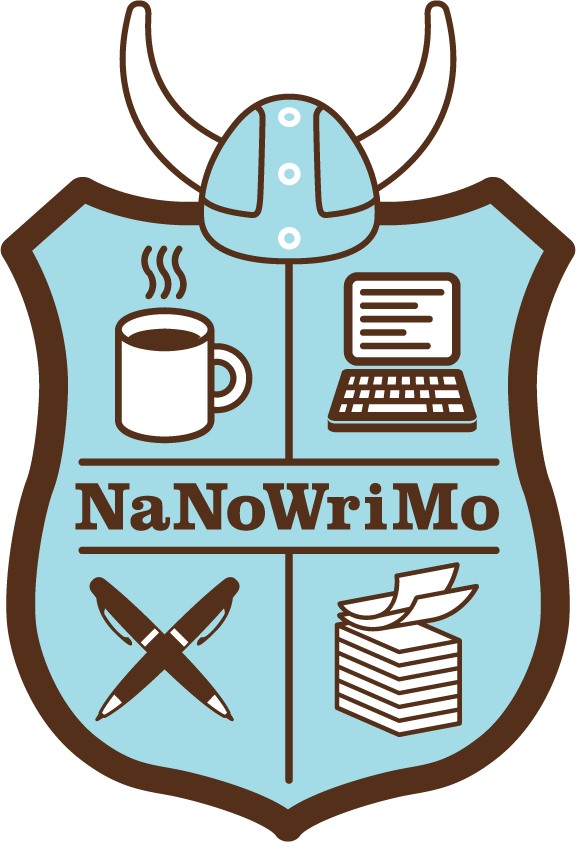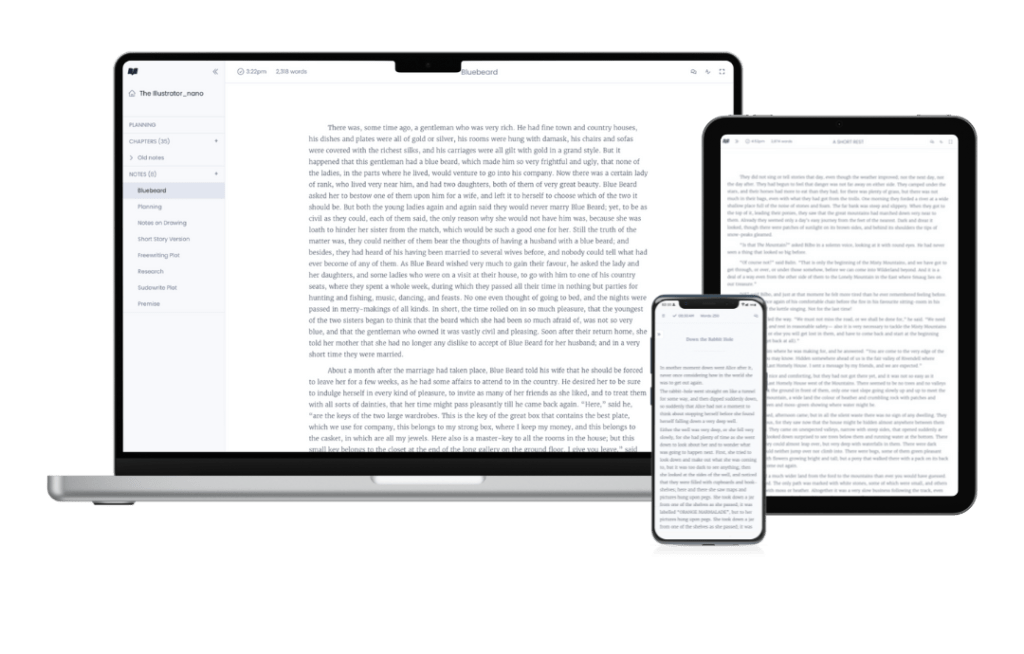
Building a Writing Habit with NaNoWriMo

NaNoWriMo is a great way to kickstart your writing habit. The process of writing 50,000 words in a month gives you the momentum and motivation you need to finally get that novel over the finish line. But what if you want to write more than just one novel? What if you want to keep the NaNo spirit going after November ends? That’s where NaNoWriMo is a great jumping-off point for building a writing habit.
In 2009, the European Journal of Social Psychology released a study that stated it takes a person between 18 to 254 days to form a new habit, with an average of 66 days for that new behaviour to become automatic. Setting clear goals and targets over November as you participate in NaNoWriMo is a great way to begin the process of habit-building. And if you stick with it, you’ll have a great head start at making writing an automatic behaviour!
What is NaNoWriMo?
National Novel Writing Month (aka NaNoWriMo) is a fun way to develop a daily writing habit. It’s an annual event during which participants challenge themselves to write a 50,000-word novel in only 30 days.
You can write anything you want during NaNoWriMo: fiction or nonfiction, poetry or screenplays, scripts—anything goes! The goal of this challenge is to get 50,000 words down on paper over thirty days, so if you write an average of 1,667 words per day, then at the end of NaNoWriMo, the first draft of your novel will be in your hands!
What is a writing habit?
A writing habit is something you do regularly, and a routine is an established way of building a habit and boosting efficiency. Creating a writing habit requires consistency to be effective.
Writing habits are like muscles: they get stronger with use. And while some writers have an easier time than others in keeping up the pace, everyone can benefit from having a daily writing regimen which makes them more productive in the long run—and keeps them from falling off the wagon completely when life gets hectic or stressful.
How to use NaNoWriMo to build a writing habit
NaNoWriMo’s most significant benefit is that it offers a structured schedule with clearly defined targets – all essential elements for habit building. A lot of effort and planning goes into writing a novel in a month, and you can take what you learn over the 30 days and apply them to help build a long-term, sustainable writing habit.
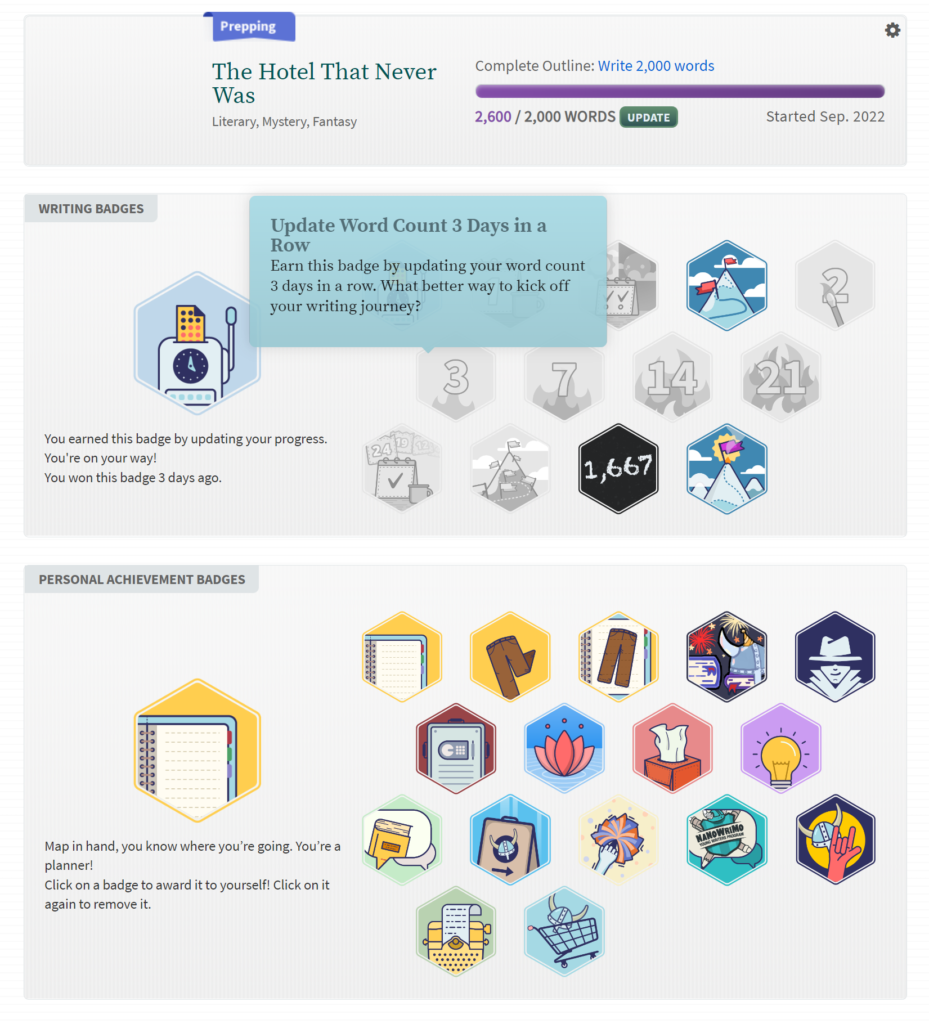
Set a daily word count goal
Setting clear, achievable goals is one of the first steps to building a writing habit. NaNoWriMo sets them for you, with pre-defined daily targets and an overarching monthly one.
The targets of NaNoWriMo are high, but after the initial push of NaNo is over, you can redefine these goals to suit your lifestyle and available time. You don’t need to keep the NaNo pace up forever, but you can use the skills you’ve developed over 30 days to keep your goal-setting going.
To keep the NaNo spirit going in a productive and sustainable way, you must ensure that your goals are realistic. Whether you plan to write 100 words a day or 1000, it doesn’t matter. It’s the habit that’s the critical part. You can always redefine your goals as your circumstances change and develop.
Thankfully, Novlr makes it incredibly easy to set your goals. With goal tracking and analytics, you’ll know exactly how you’re progressing to achieve them! You can set your own word counts across all projects or for single novels, and Novlr even tracks your writing streaks, so you know how many days you’ve written in a row.
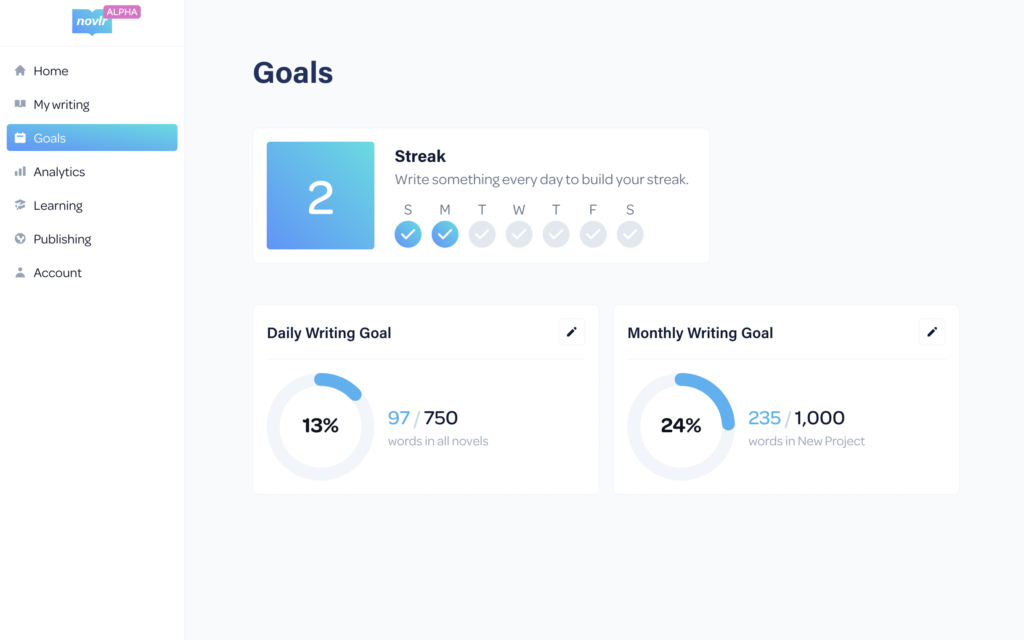
Use a calendar or planner
Whether you’re digital or analogue, one of the most important things you can do to keep track of your writing habit is to use a calendar or planner. This will help you see how often you’re writing, what days work best for you, and how much time it takes out of your day.
Personally, I use a mood-tracking app that lets me track my daily activities (of which writing is one). I can also write down any other events happening in my life during this period, so I know if certain moods, activities, or events distract me from my writing goals.
I’ve learned a lot about myself as a writer through this practice, and it helps me plan with my goals in mind. I’ve learned that on certain days, if I’m in a certain mood, then creativity is just not on the cards for me, so I don’t force it. Forming a writing habit is a delicate balance between productivity and self-care. On days I know I won’t be creative, I do something writing-adjacent to keep up my schedule and save my big creative pushes for days when I know I stand the best chance of being productive.
This is another reason NaNoWriMo is such a great starting point. Being able to track your progress toward 50,000 words means you know when you can slow down and write a little less, and when you really need to push through and write more.
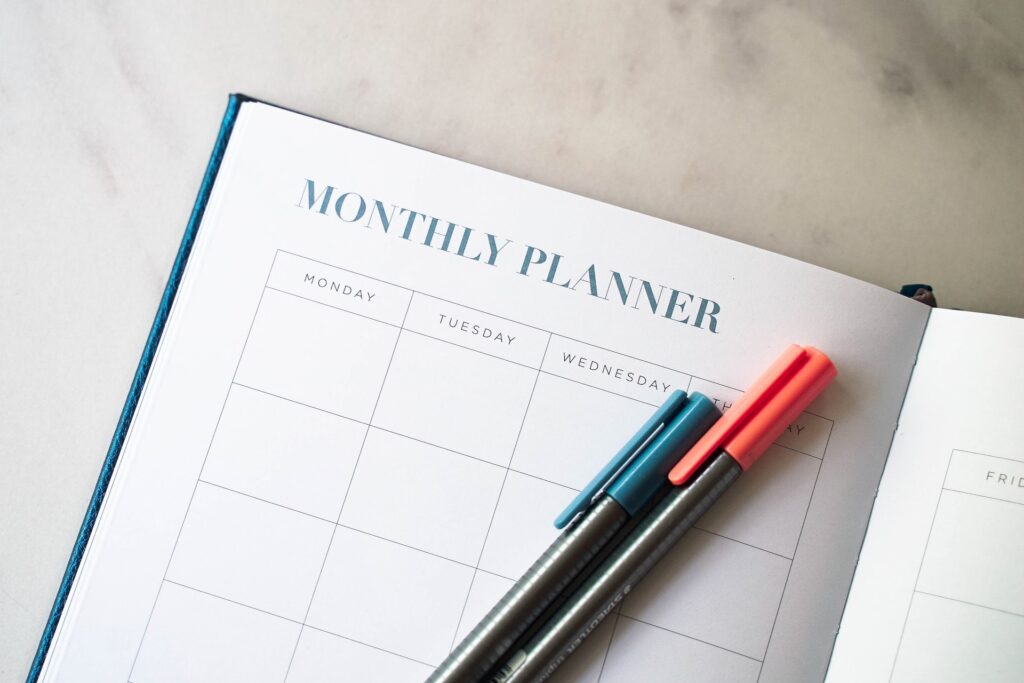
Ignore your inner critic
It’s safe to say that writers are some of the most self-critical people. Imposter syndrome is rife, and we tend to question everything we do, and our talents, at every opportunity. This is always exacerbated if you’ve taken a break from writing and come back to it after some time – another reason why building a writing habit is so essential.
Letting your inner critic get the best of you and breaking your flow is the worst thing you can do to yourself as a writer. A writing habit is all about writing every day and not about the quality of what you produce. Adopting that mindset will not only increase your productivity, but you’ll see a marked increase in the quality of your prose if you just get out of your own head.
NaNoWriMo’s set target and focus on pushing through make it the perfect place to practice this mindset. For November, NaNo itself is the goal, making it easier to ignore that little voice that tells you that you don’t have what it takes.
Don’t worry about making mistakes—you’ll always be able to fix them in editing. And don’t worry about what other people think—the only opinion that matters is yours!
Set yourself some dedicated, distraction-free time to write
While it’s easier said than done, carving out some dedicated, distraction-free writing time is essential to building a writing habit. It doesn’t matter when that is or where you do it; find what works best for you and try to stay consistent over time.
I’m not a morning person, so my most productive time for personal projects is in the evenings. I try to write for an hour after I finish work and before I think about dinner. If I’m in the zone, I might keep going and eat at my desk, or come back to it and write until the early hours.
A lot of writing advice will tell you to write first thing in the morning and write your “morning pages”, but realistically, that doesn’t work for everyone. No one knows you better than you, so try to work out what works best for you, and set aside time and space in your schedule. Even if you only have 10 minutes and can only write 100 words, that’s ok. Every little bit maintains your writing habit and brings you one step closer to the finish line.

Be accountable
Making a commitment to yourself is one of the best ways to ensure success. When you set a deadline, commit to a goal, and share that goal with others, you create a sense of accountability.
Accountability can come from simply writing your goals down or, even better, telling someone what you will do and making them aware of your progress. Telling your family and friends that you’re doing NaNoWriMo is a great accountability declaration, as is declaring a project on the NaNo website. Buddying up with other writers means you can track each other’s progress and celebrate and support your fellow writers as you achieve your goals.
Accountability is one of NaNoWriMo’s greatest draws and is a fantastic way to set yourself up for a writing habit. But after NaNo ends, then you’ll need to keep that accountability going as an extra level of commitment to your goals. A great way to do this is by joining an online community, either through social media, or using a community platform like Discord. You can even join the Novlr writing community, where you can talk about your writing with other like-minded writers!
Write, don’t edit
Write the first draft, don’t edit as you go.
The goal of NaNoWriMo is to get words on the page, not to worry about grammar or style. Editing as you go is a surefire way to get yourself stuck in a loop and letting your inner critic take over.
NaNoWriMo’s 50k goal means it’s all about the first draft, and this is something you can carry over into building your writing habit for the future. Of course, it’s ok to edit if something isn’t working and you need to take something in a new direction, but don’t get too hung up on the minutiae.
I’ve never had a project end up exactly as I’d planned initially, so it’s always best to go along for the journey before you start overthinking.
Just letting yourself write is incredibly freeing and is definitely the best way to keep up a writing habit. Self-editing as you go interrupts your flow, and it can be tough to get back into the right headspace to pick up the narrative threads again. So if you take anything away from NaNoWriMo this year, let it be this: just write.
If you’re feeling overwhelmed by all the writing you need to do and wondering where to start, NaNoWriMo is the perfect way to build a writing habit. It’s not about being a perfect writer; it’s about getting words on paper every single day. The beauty of this challenge is that it gives you a framework to work within while letting your creativity shine through.
With a little bit of planning and a lot of determination, NaNoWriMo can help you kickstart your writing habit. It’s not an easy task, but if you’re up for the challenge, it’s worth it!
Novlr is a proud sponsor of NaNoWriMo 2022




























